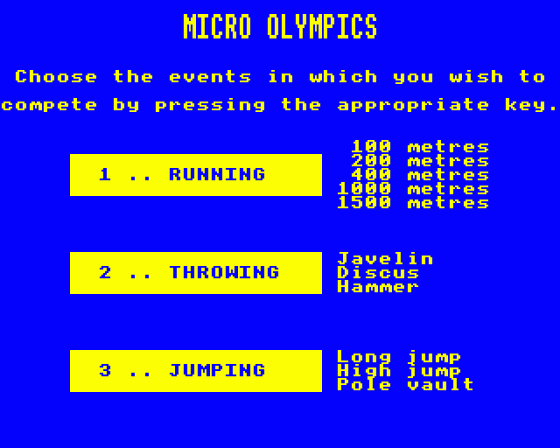
Personal Computer News
 15th December 1984
15th December 1984
Categories: Review: Software
Published in Personal Computer News #091
Christmas will introduce hordes of novices to the micro scene, all the target of softwre sales and promotion teams. Software will be pushed like pop music, furniture and food. It looks like software is the next consumer industry.
Searching For Software Solutions
The roots of computer games are buried in a mire of wrangle and myth. The real 'first' might have been a simple text adventure such as Hunt The Wumpus - output to a printer of course. Or perhaps it was an early version of Star Trek, again with printed results of each move.
The modern moving character game is far more immediate, requiring fast reflexes. It rapidly split into shoot-'em-ups, mazes and platforms. The movements are simple, shoot or be shot, avoid the prowling creatures and leap gaping chasms. An interesting question is why some game types rapidly became identified with space, defence of Earth, etc. Perhaps it's easier to imagine pale, vague shapes as alien ships, bent on your destruction. Certainly, space is more exotic and romantic.
Moving games are at their best in the arcades, and software producers have spent hours converting such favourites as Space Invaders, Phoenix, Frogger and so on. Many new games are still 'versions' of arcade favourites - some licensed, some not. More recently, software houses have produced the 'official' computer versions of games by Atari and Konami among others. Only very recently have we seen a reversal, where the computer version is launched almost at the same time as the arcade machine.
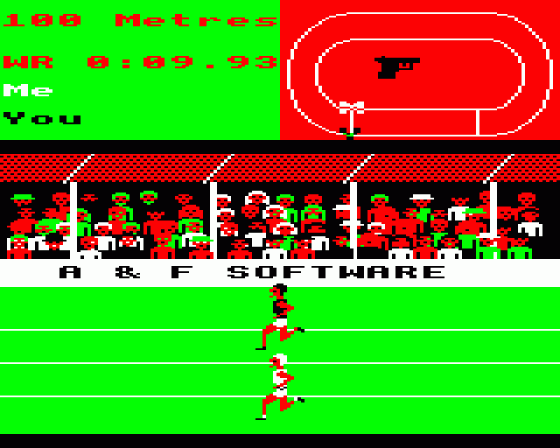
As perspective projection became fashionable wireframe drawings of space ships meant they could appear to rotate, approach and retreat. The method has even been used in games like Bug-Byte's Kung-Fu, where two players slug it out in oriental surroundings.
Another important development has been simulation, particularly in flight. Some programs don't offer much at all - displays and controls are sparse, response to controls is slow, and worse, you may simulate the physically impossible. Among the best are Microsoft's Flight Simulator for the IBM, Solo Flight (Commodore 64), Interdictor Pilot (Commodore 64), Aviator (BBC) and Fighter Pilot (Spectrum). The machines range from Spitfires to fighter jets, and the programs often include some battle element. Some games incorporate flight simulation as part of a larger scenario, e.g. Elite (BBC, Acornsoft) or Star Trader (Spectrum, Bug-Byte).
Ideas
Programmers have combed many fields for novel games ideas, and the plundering of other media has started in earnest. Everyone likes a good story, and programmers have borrowed from Norse and Celtic legend (Valhalla, The Saga Of Erik The Viking, Tir-Na-Nog), Greek myth (Pegasis) and more recent folk-tales such as The Hobbit.
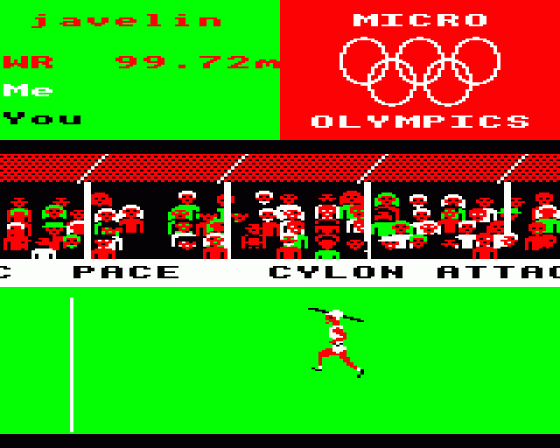
The borrowing often takes little more than a scenario, characters and/or some background story, and all too often the game has little to do with the original.
Books are an ideal source of ideas, scenarios and characters. Some games have borrowed from Dante (Inferno, Richard Shepherd), The Bible (Jericho Road, Galilee, Shards) but more recently science fiction/fantasy has been a major source. Mosaic publishes book/game packages such as a game based on Harry Harrison's The Stainless Steel Rat Saves The World. There's War Of The Worlds (CRL) and some of Anne McCaffrey's science fantasy works have been 'translated' for the computer.
Joining the prize-giving bandwagon created by Kit Peddler's Golden Hare is Hare Raiser, from Haresoft. The prize is - the original golden hare (Yes, again - its finder sold it!). And Commodore has taken up the puzzle/prize book, Spirit Of The Stones. Clues are provided in the arcade-style games about where jewels and a talisman have been stashed on the Isle of Wight.
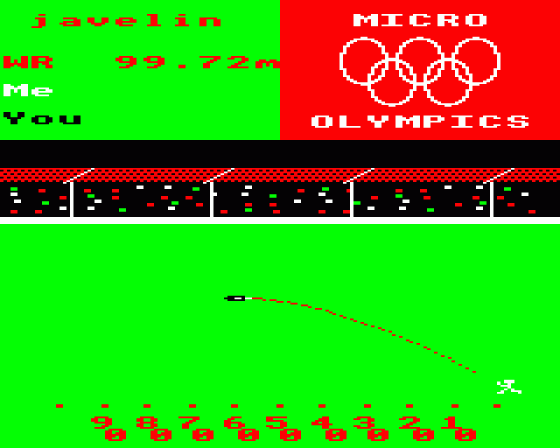
Sport is a popular theme and there are games where you manage a football team (Football Manager, American Football), play golf, cricket, tennis and water-ski or sail. The dominate competitive theme of games, and the Olympics conspired to produces a burst of sports simulations this summer. They were a breath of fresh air as the animators rose to the challenge. Daley Thomspon's Decathlon, Decathlon, Micro Olympics, Summer Games, Olym-pi-mania and others proved popular.
There are some half-dozen racing games, including Pole Position (Atari, the standard-setter), Full Throttle (Micromega), Enduro (Activsion) and Turbo-64 (Limbic Systems). BMX-based games have hit the scene too.
Whether or not Donkey Kong was the earlier film-inspired game, it sets a standard for games of its sort though like skateboards or a hit record, its popularity soon faded. Variations on the "fly down the tunnel theme" followed shortly on Star Wars. Palace Software released The Evil Dead, and variations from scenes from Tron were rampant. Bruce Lee has lived again on computers and Sinclair has licensed the rights to visual sequences from one of the Star Wars films. Activision's Ghostbusters, based on the latest American cult-film, is due for release this month, and Mind Games has brought out Alien.
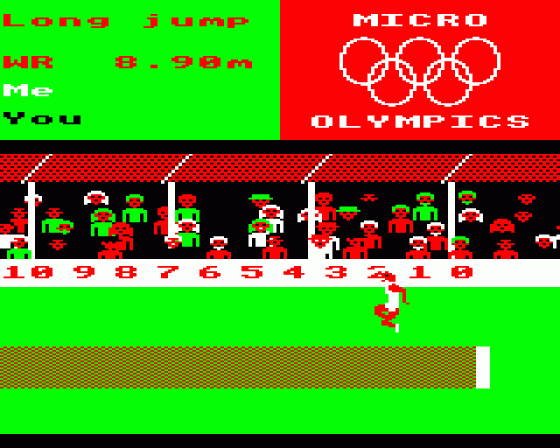
Now you can summon up favourite TV programs on the screen as often and whenever you like. To date there are Dallas, a graphics adventure, and The Magic Roundabout, which uses recognisable cartoon characters from the series, though the music is less clear. A version of The Fall Guy is scheduled for release by Elite Systems before Christmas.
Roland Rat lovers should know that negotiations between Ocean and TVAM are taking place and another game will focus on the Air Wolf programs (an A-Team variation due for screening shortly).
Board Games
Chess on a computer is well established. As with the first versions of Star Trek, these initially produced results only on paper, but the advent of high-resolution graphics led to rapid developments. MyChess II, for instance, features a 3D view. Noughts and Crosses, Draughts, 3D Draughts, and other games of strategy such as Go are all available. Cluedo, Scrabble and Monopoly have not been ignored. Spectrum Scrabble has always sold steadily. Last but not least there's MUD - nn interactive adventure running on a mainframe at Essex University which has several players at once.
Christmas will introduce hordes of novices to the micro scene, all the target of softwre sales and promotion teams. Software will be pushed like pop music, furniture and food. It looks like software is the next consumer industry.
This article was converted to a web page from the following pages of Personal Computer News #091.



